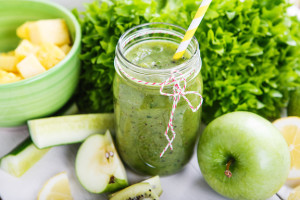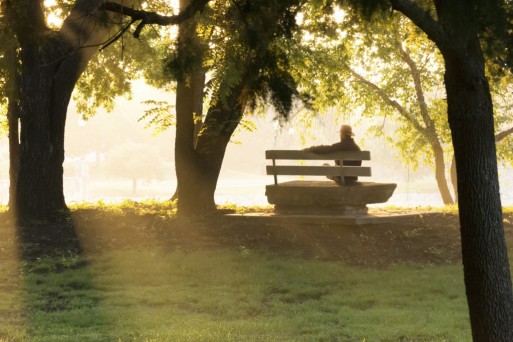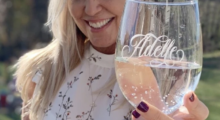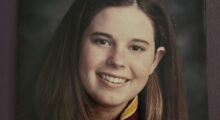Today is part two (read part one here) of SevenPonds’ interview with Heather Michet, a Registered Aromatherapist, Essential Oil Therapist and Reiki Master from Sandy, Oregon. The owner of Iris Healing Arts, Heather is a former civil engineer who transformed her personal interest in natural healing into a thriving holistic practice. Using a combination of natural solutions, energy healing and aromatherapy, Heather helps clients from all over the world lead more balanced and healthier lives.
An accomplished vocalist, Heather also performs at memorial services, blessings and funerals, using the soothing vibration of a cappella music to create meaning and connection for the friends and families of those who have died.

Credit: goinswriter.com
Kathleen: Heather, I’d like to go back a bit and talk about the issue of hydration again. Can you tell me a little bit more about how water intake affects wellness and health?
Heather: Certainly. As I mentioned earlier, our bodies are made up of about 70 percent water, and every single organ system needs water to function well. Yet, most people get nowhere near the amount of water they need. This leads to a state of chronic dehydration that contributes to many health issues, including memory loss, heart disease and kidney problems. It also robs people of energy and leaves them less able to cope with stress. There’s a very good video about this on my website called “Drink Water for Life.”
Kathleen: How much water should a person drink?
Heather: In general, a healthy person should drink the volume of water in ounces that is equal to one-half of his body weight in pounds each day. So, a person who weighs 150 pounds should drink 75 ounces — or about nine or 10 8-ounce glasses of water — every day.
Kathleen: Wow! That’s a lot!
Heather: It seems like a lot, but it’s really not. We just need to train ourselves to do what’s best for our bodies — to develop habits that help us stay well, especially when we are under stress. Caregivers and people who are grieving, especially, tend not to take care of themselves as they should. Drinking enough water is one relatively simple step that they can take to stay as healthy as they can.
One suggestion I give my clients is to put a glass of water by their bedside at night and drink it first thing in the morning, before they get out of bed. I also recommend that they fill a pitcher with the amount of water they need to drink each day and leave it on the kitchen counter as a visual reminder. If they are leaving for a few hours, they just fill a portable container from the pitcher and take it with them. My clients say this strategy works very well.
Kathleen: Thanks for that tip, Heather. I think I’ll try it myself! Do you have any other tips for our readers who are living with grief or other difficult situations, or for people at the end of life?

Credit: vegkitchen.com
Heather: Well, nutrition is always a big factor. People who are not physically well, as well as caregivers and those who are dealing with grief and loss tend not to want to (or be able to) sit down and eat a meal several times a day. So, nutritious snacks — fresh fruits and vegetables, high-protein foods such as peanut butter, hard-boiled eggs or edamame — are always a good choice. Also, dark green smoothies made with antioxidant-rich foods such as kale are nutritious and a wonderful boost for the immune system.
Of course, people who are approaching the end of life often will not have an appetite. During the dying process, the body will naturally begin to shut down and the need for food decreases, so we need to honor that.
Kathleen: That’s very true.
Heather: Another thing I like to emphasize to my clients is how important it is to keep their vital energy flowing — to release rather than hold on to their pain. This can be accomplished in many different ways: deep breathing, going outside and taking a brief walk, crying, journaling, art. For those in the midst of grief, sometimes writing a letter to the person who has died or is dying — getting those difficult emotions out in writing — helps as well.
It’s important to remember, too, that each person is an individual and there is no “right” way to deal with illness, grief or one’s impending death. As Beth Howard says in her beautiful book “Making Piece: A Memoir of Love, Loss and Pie,” “Another thing about grief is that it gives you permission to take care of yourself in a way you never knew how to before.”

Credit: catholicmatch.com
Kathleen: That’s very profound and very true. People grieve for many different reasons, and in many different ways. We each need to find our own path.
Heather: Yes. We also need to remember that the body has an innate capacity to heal and be well even in the face of impending death. My job, as I see it, is to provide my clients with tools they can use and allow them to make choices based on what feels right for them. There is no one “prescription” that works for everyone all the time.
Kathleen: Thank you, Heather. I really appreciate your insights and I’m sure our readers will as well. Again, thanks for sharing your thoughts with SevenPonds.
Heather: You’re very welcome!

 Can Aromatherapy and Reiki Help with Terminal Illness and End-of-Life Care? An Interview with Heather Michet, Part Two
Can Aromatherapy and Reiki Help with Terminal Illness and End-of-Life Care? An Interview with Heather Michet, Part Two


 Funeral Home Owner Chris Johnson Spending Halloween in Jail
Funeral Home Owner Chris Johnson Spending Halloween in Jail
 Our Monthly Tip: Toast a Loved One with a Personalized Glass
Our Monthly Tip: Toast a Loved One with a Personalized Glass
 My Cousin’s Death Taught Me the Meaning of Life
My Cousin’s Death Taught Me the Meaning of Life














